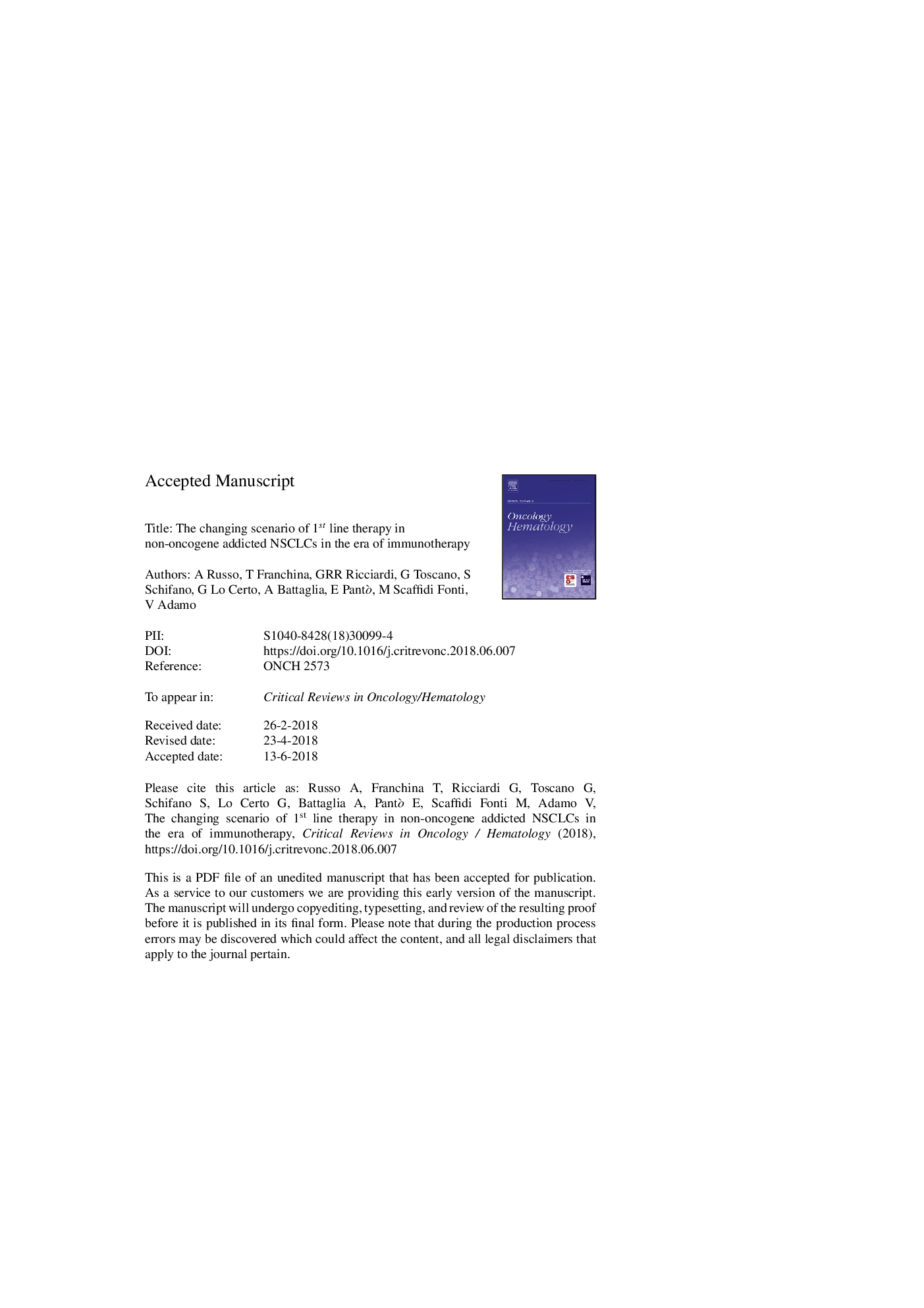| Article ID | Journal | Published Year | Pages | File Type |
|---|---|---|---|---|
| 8733503 | Critical Reviews in Oncology/Hematology | 2018 | 32 Pages |
Abstract
During the last two decades front-line treatment of metastatic Non Small Cell Lung Cancer (NSCLC) has profoundly changed moving from the old “one size fits all” concept to a “histology-based” approach and then, for a small subgroup of patients to a “molecularly-selected” one. The development of immune checkpoint inhibitors and the unprecedented results reported in 2nd/3rd line prompted the evaluation of these novel therapeutic agents in chemotherapy-naïve patients either alone or in combination with platinum-based chemotherapy. Several randomized trials are evaluating the impact of immune-checkpoint inhibitors in 1st line and some of them have yet produced preliminary evidence of efficacy. However, still a long way to go and several questions are still unanswered, including proper patients selection, optimal sequential/combinatorial use of these agents, appropriate treatment duration, and finally the identification of predictive biomarkers. The aim of this paper is to provide a comprehensive overview on the growing role of immune checkpoint inhibitors in the upfront treatment of advanced non-oncogene addicted NSCLC either as single agent or in combination with other agents.
Related Topics
Health Sciences
Medicine and Dentistry
Hematology
Authors
A. Russo, T. Franchina, G.R.R. Ricciardi, G. Toscano, S. Schifano, G. Lo Certo, A. Battaglia, E. Pantò, M. Scaffidi Fonti, V. Adamo,
